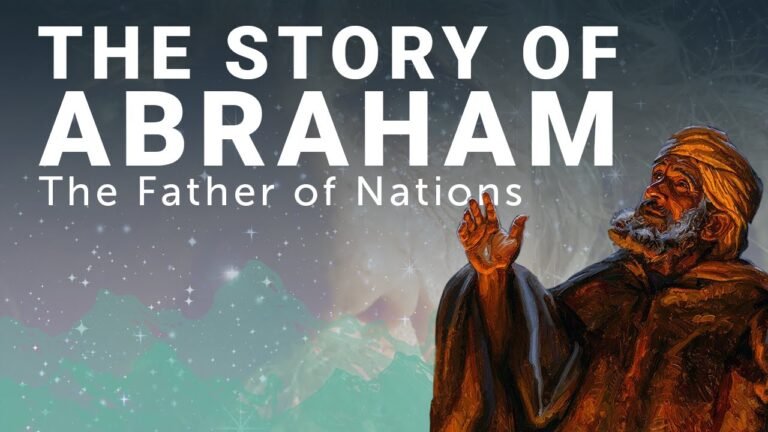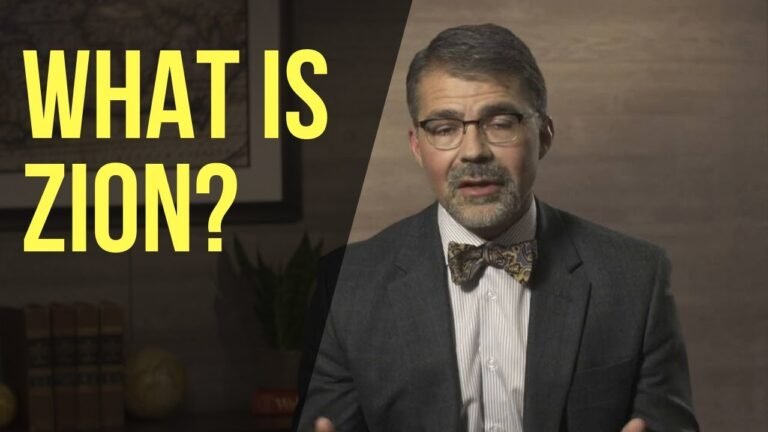Understanding Abraham’s Role in the Holy Bible
Abraham, a pivotal figure in the Holy Bible, is revered as the patriarch of three major world religions: Judaism, Christianity, and Islam. His journey of faith, marked by unwavering trust in God and profound obedience, sets the foundation for countless narratives that explore themes of covenant, sacrifice, and divine promise. As the father of Isaac and the ancestor of the Israelites, Abraham’s legacy transcends time, inviting readers to delve into the rich tapestry of biblical history and spirituality. Understanding who Abraham is not only illuminates the past but also offers valuable insights into the beliefs and values that continue to shape millions today.
What is the significance of Abraham in the Bible?
Abraham is a pivotal figure in the Bible, recognized as the first patriarch of the Hebrew people. His story begins with a divine call from God, urging him to leave his homeland and embark on a journey to an unknown territory. This act of faith not only marked the beginning of the Israelites but also established Abraham as a cornerstone in the narrative of the Abrahamic religions, including Judaism, Christianity, and Islam.
His importance extends beyond his role as a founder; Abraham is celebrated for his unwavering faith and obedience to God. He is often seen as a model of righteousness and is credited with the covenant, a sacred agreement that promises blessings to his descendants. This legacy of faith and commitment continues to inspire millions, making Abraham a central figure in religious teachings and cultural identity across the world.
What is the significance of Abraham in the Bible?
Abraham, a central figure in the Bible, is revered as the father of faith in Judaism, Christianity, and Islam. His journey begins in Ur, Mesopotamia, where he responded to God’s call to leave his homeland and seek a new destiny. This monumental decision set the stage for the establishment of a nation, as God promised Abraham that his descendants would inherit the land of Canaan, marking the beginning of a divine covenant that would resonate through generations.
Abraham’s unwavering obedience to God’s commands exemplifies a profound faith that has inspired countless believers throughout history. His narrative illustrates themes of trust, sacrifice, and the importance of a relationship with the divine. As the patriarch of three major world religions, Abraham’s legacy is not only foundational to these faiths but also serves as a timeless reminder of the power of faith and commitment to a higher purpose.
What is the relationship between Abraham and Jesus?
Abraham holds a significant ancestral role in the lineage of Jesus, serving as a foundational figure in the Jewish faith. As a Jew, Jesus’ heritage can be traced back through generations to King David, establishing a direct connection to Abraham, who is often referred to as the father of many nations. This lineage not only underscores Jesus’ roots in Jewish history but also highlights the fulfillment of ancient promises made to Abraham, reinforcing the continuity of faith from the patriarch to the Messiah.
Unveiling the Legacy of Faith
Throughout history, faith has served as a powerful beacon, guiding individuals and communities through the trials of existence. It has inspired movements, fostered resilience, and ignited a sense of purpose that transcends generations. From ancient texts to modern practices, the legacy of faith is woven into the very fabric of human experience, shaping moral values and nurturing hope in times of despair. As we explore this rich tapestry, we uncover stories of perseverance and transformation, reminding us that faith is not merely a belief, but a profound force that unites us in our quest for meaning and connection.
Abraham: The Father of Nations
Abraham stands as a pivotal figure in the history of humanity, revered as the Father of Nations for his role in the founding of major world religions. His journey from Ur to Canaan symbolizes a profound commitment to faith and obedience, inspiring millions to pursue a life of purpose and devotion. Through his covenant with God, Abraham not only established a legacy for the Jewish, Christian, and Islamic faiths but also exemplified the virtues of leadership, sacrifice, and resilience. As a unifying figure, his story transcends cultures and epochs, reminding us of the enduring power of belief and the potential for unity among diverse peoples.
Lessons from Abraham’s Journey
Abraham’s journey is a compelling narrative that underscores the importance of faith and resilience in the face of uncertainty. As he ventured into the unknown, he exemplified the power of trusting in a vision beyond immediate circumstances. His willingness to leave behind familiarity for the promise of a brighter future teaches us that growth often requires stepping outside our comfort zones. This leap of faith not only transformed Abraham’s life but also laid the foundation for a legacy that would inspire generations.
Moreover, Abraham’s encounters along the way highlight the value of community and collaboration. By forming alliances and showing kindness, he demonstrated that relationships are vital in overcoming challenges. His story reminds us that while the path may be fraught with obstacles, the support of others can illuminate our journey. In embracing both faith and connection, we learn that personal growth is best achieved not in isolation, but through shared experiences and collective aspirations.
Exploring Covenant and Promise
Throughout history, the concepts of covenant and promise have served as foundational pillars in both religious and secular contexts, shaping relationships between individuals, communities, and the divine. A covenant often represents a binding agreement, characterized by mutual commitments and responsibilities, while a promise conveys a personal assurance of future action or support. Together, they create a framework for trust and accountability, fostering deeper connections and a sense of shared purpose.
In exploring these themes, we uncover the profound impact they have on human experiences and societal structures. Covenants, whether in sacred texts or legal agreements, illustrate a commitment to uphold values and ethical standards, while promises provide a sense of hope and continuity amidst uncertainty. By examining these intertwined concepts, we gain insight into how they guide our interactions, influence our choices, and ultimately define the bonds that unite us across cultures and generations.
Abraham stands as a pivotal figure in the Holy Bible, embodying faith, obedience, and the promise of a covenant with God. His journey from Ur to Canaan not only illustrates the profound relationship between humanity and the divine but also sets the foundation for the Abrahamic traditions that shape Judaism, Christianity, and Islam. As a model of unwavering belief, Abraham’s legacy continues to inspire countless individuals seeking meaning and guidance in their spiritual lives.







